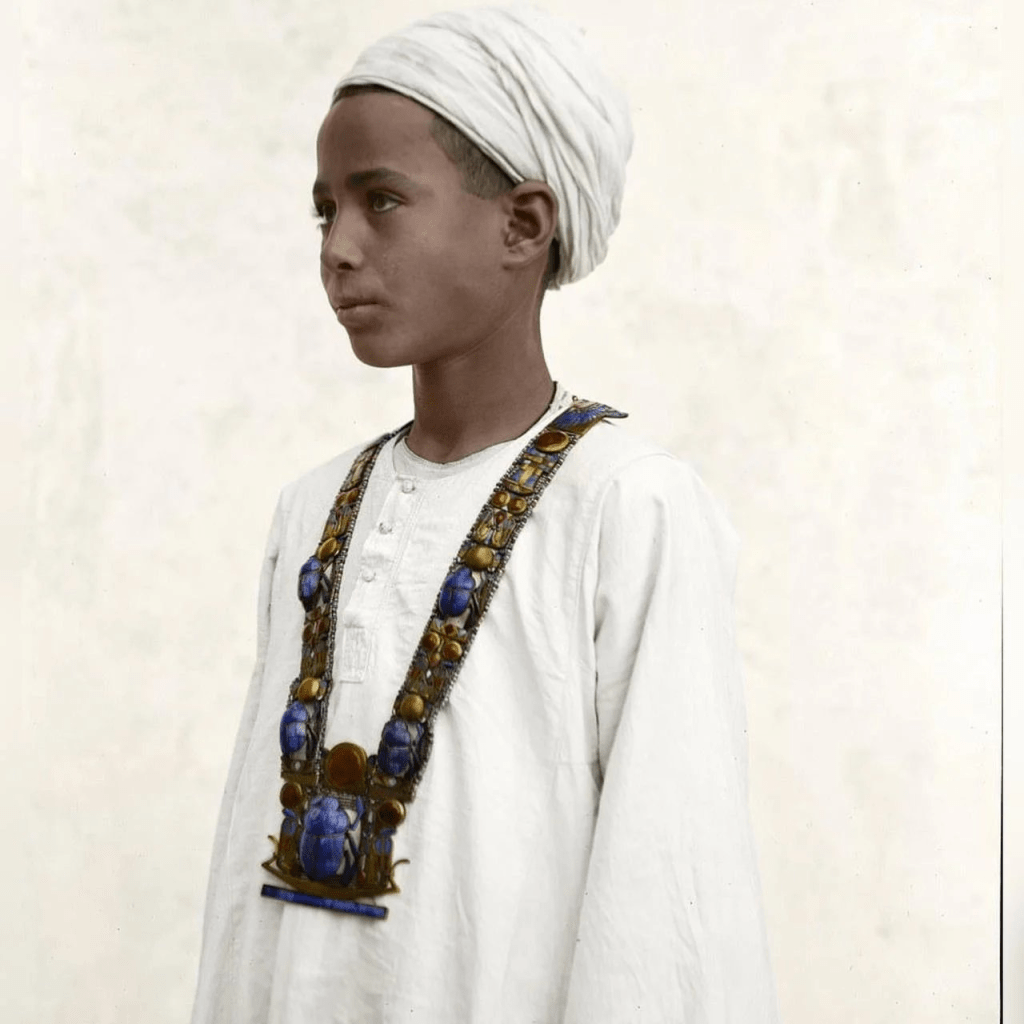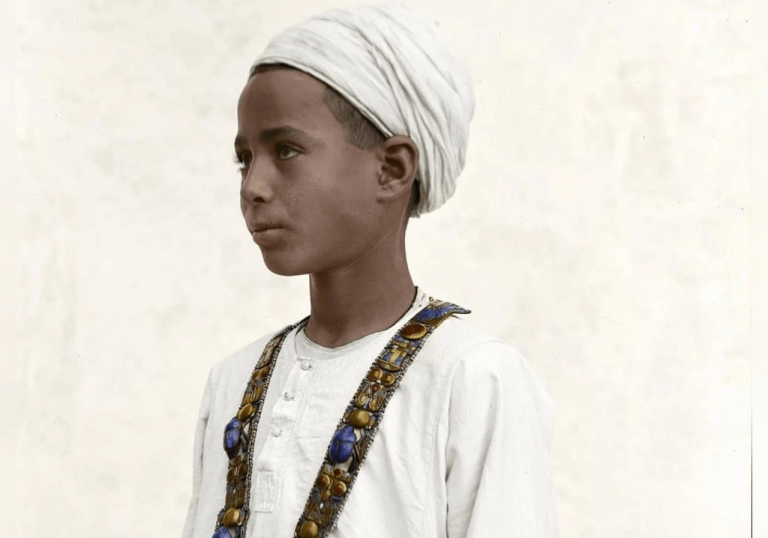In 1922, deep in Egypt’s Valley of the Kings, a twelve-year-old boy made a discovery that would change history forever. His name was Hussein Abdel-Rasoul—the unsung Egyptian child who led the world to King Tutankhamun’s tomb, the greatest archaeological find of the 20th century.
A Donkey’s Stumble That Changed History
Hussein was a young boy from Luxor, part of the Egyptian team assisting Howard Carter’s British expedition. One morning, as he rode his donkey near the excavation site, the animal stumbled and fell. One morning, as he rode his donkey near the excavation site, the animal stumbled and fell. His water jug shattered on the ground, and as the water spilled, Hussein noticed a carved stone step beneath the wet sand.
Curious, he brushed away the sand and revealed what would become the entrance to Tutankhamun’s tomb. He quickly called for Carter, who dug with his hands until the rest of the staircase appeared. It was the beginning of an extraordinary discovery that would soon astonish the entire world.

The Forgotten Egyptian Who Led the World to Tutankhamun
For decades, the name Hussein Abdel-Rasoul faded from history, overshadowed by the fame of Howard Carter and Lord Carnarvon. Yet it was this Egyptian boy’s sharp eye and innocent curiosity that opened the door to a pharaoh’s resting place—untouched for over 3,000 years.
His son, Nubi Hussein Abdel-Rasoul, recalls the pain of that silence: “The whole world knew Carter’s name,” he said, “but no one talked about the boy who found the tomb.”

Egypt Honors the True Discoverer
During the Grand Egyptian Museum’s opening ceremony, that long silence was broken. A touching documentary, narrated by actor Karim Abdel Aziz, told Hussein’s story—bringing long-awaited recognition to the child who changed archaeology forever.
In a powerful creative tribute, AI Art Director Rami Emad crafted a stunning short film blending history with modern innovation, celebrating Egypt’s heritage through the eyes of the boy who found a king.

The Day Pride Returned to the Abdel-Rasoul Family
Watching the film, Nubi said he felt “tears of pride” as his father’s name finally took its rightful place in Egypt’s story. The museum even dedicated a special corner with Hussein’s photos—an act that Nubi described as “restoring rights to their owners.”

A Legacy Written in Stone and Sand
More than a century later, Hussein Abdel-Rasoul’s story reminds us that great discoveries often come from humble hearts. What began with a boy, a donkey, and a stumble became a moment that changed history—and ensured that Egypt’s own son finally shines among its ancient kings.
WE ALSO SAID THIS: Don’t Miss…The Heroes Behind the Grand Egyptian Museum’s Historic Opening



